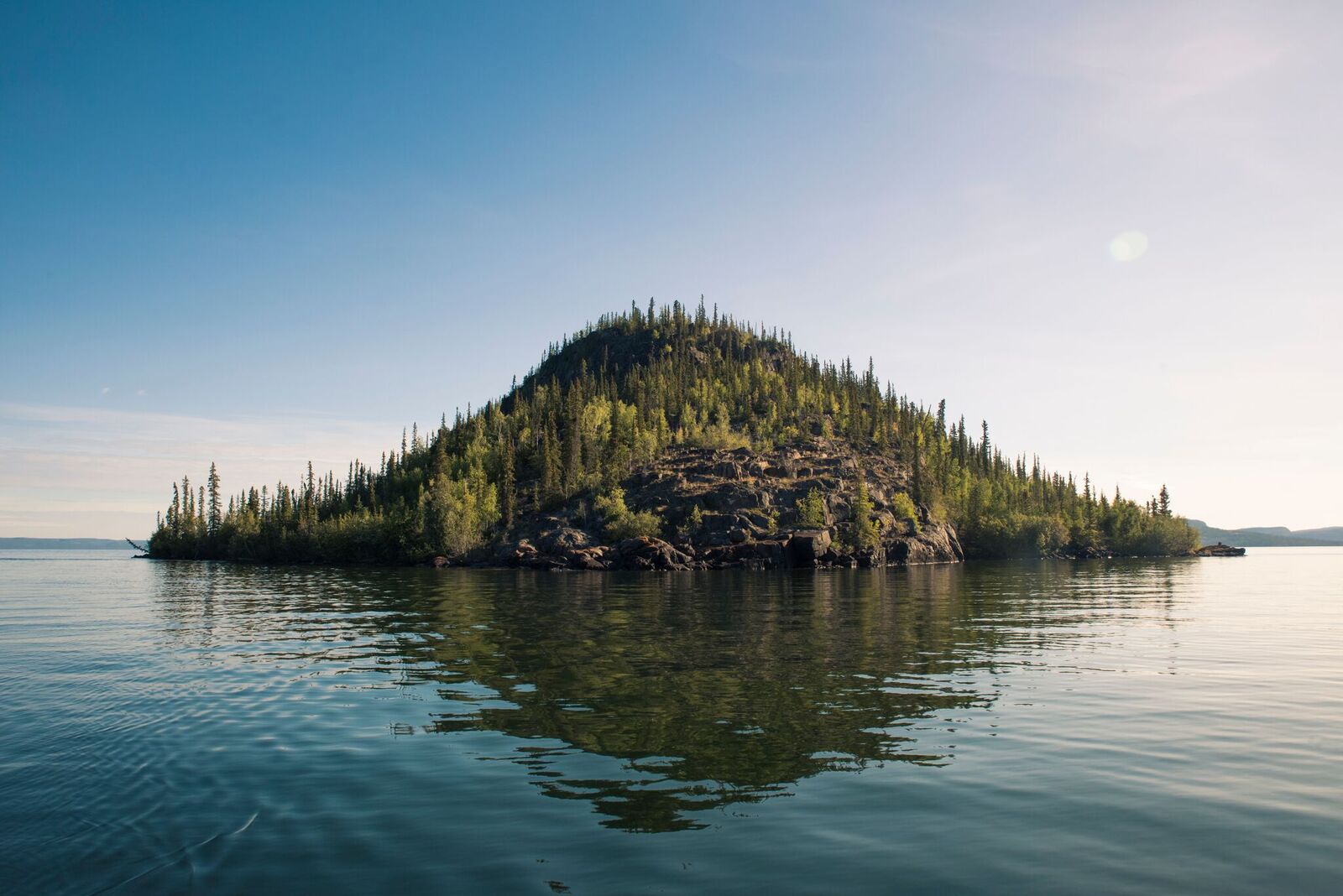

The boreal holds 25 percent of the world’s wetlands. These wetlands filter the forest’s vast freshwater reserves, supplying clean water and buffering against floods and drought. They provide food and nursing grounds for countless animals and billions of birds. And they store vast amounts of carbon: boreal wetlands and peatlands are estimated to store the equivalent of more than 25 years of global fossil fuel emissions.
Chains of wetlands and small ponds give way to wide-open waters: four of the world’s 10 largest lakes are found in the boreal. Great Bear Lake in the Northwest Territories is larger in size than Belgium and is considered the biggest unpolluted lake on the planet. The Sahtúgot’ine Dene who live along its shores have committed to conserving Great Bear Lake for a time in the future when people in the south run out of clean water.
Many of these lakes are linked together by giant river systems like the Yukon and the Mackenzie—rivers similar in scale to the Mississippi. Yet unlike in the US, the boreal in Canada still has undammed and free-flowing rivers. These wild waters support some of the last salmon migrations and carry freshwater nutrients to commercial fisheries in northern oceans—a reminder of the long reach of boreal waters and the countless species and communities that depend on them.
Did you know?











